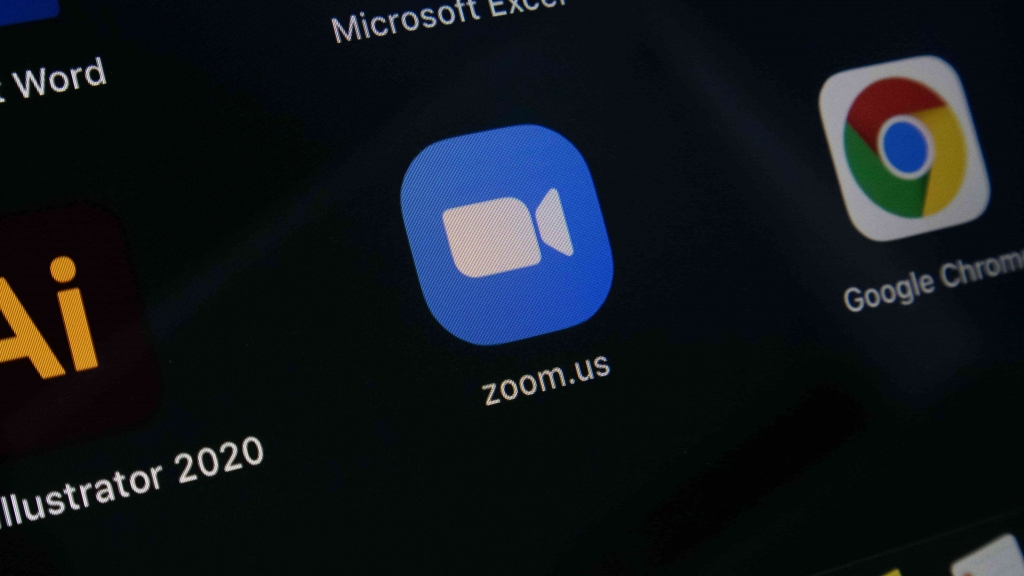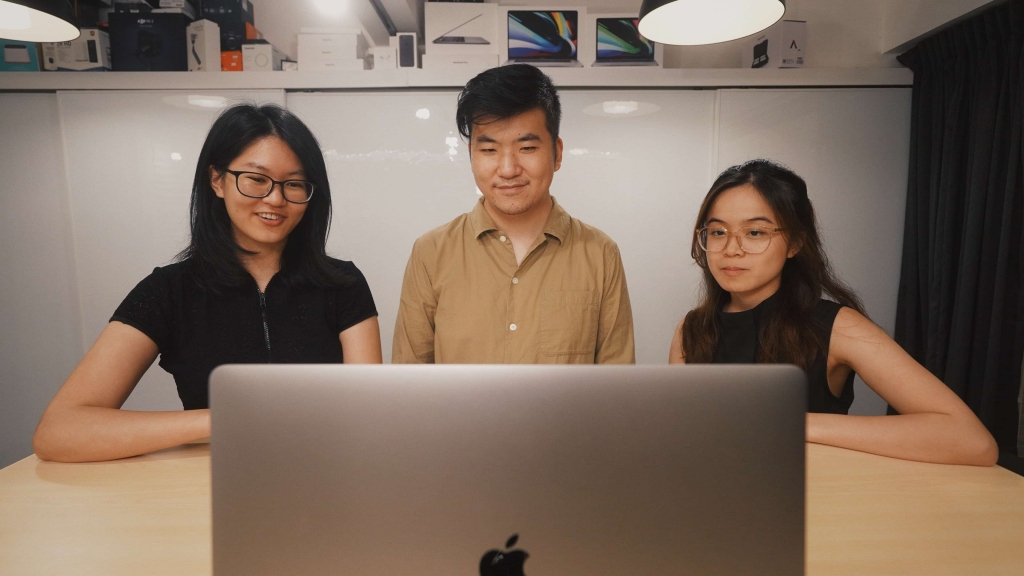You’re not alone if you’re finding yourself more fatigued at the end of the day than you used to be. “Zoom fatigue” has been mentioned more and more on social media in recent weeks, and Google searches for the phrase have progressively climbed since early last year.
Why are video calls so taxing to us? There are several causes for this.

It’s partly because they force us to pay attention to talks more intently in order to absorb information. Consider this: you may rely on whispered side dialogues in a conference room to catch you up if you get distracted or to answer rapid, clarifying queries. During a video call, however, unless you use the private chat tool or uncomfortably try to find a chance to unmute and ask a colleague to repeat themselves, this is difficult.
The fact that video calls make it easier than ever to lose attention isn’t helping matters. We’ve all done it: concluded that, yeah, in thirty seconds, we can listen closely, check our email, text a friend, and post a happy face on social media. Except, of course, when we’re distracted, we don’t do any listening at all. Many of our work-from-home scenarios are adding gasoline to the fire.
We aren’t merely dialing into one or two virtual meetings any longer. We’re also always coming up with new polite ways to beg our loved ones not to bother us or tuning them out as they crawl across the floor to fetch their headphones from the dining table. It’s especially difficult for individuals who don’t have access to a private workspace.
Suggested Read: How to Control Your Home from Your Mobile Phone
What is Zoom Fatigue, and how does it affect you?
You haven’t had to deal with traffic, and you haven’t had a regular stream of people coming in and out of your area since you work or go to school at home. However, by the time you’ve done your last Zoom call of the day, you’re absolutely spent. What’s the deal with that?
It’s possible that you’re experiencing Zoom tiredness, also known as virtual fatigue or Zoom exhaustion. You’re not the only one who feels this way. After a virtual conference call, you may suffer a feeling of exhaustion known as Zoom fatigue. Zoom fatigue has become so frequent that Stanford and other organizations are starting to investigate the psychological consequences it has on people.

Finally, “Zoom fatigue” is caused by the way we process video information. The only way to prove we’re paying attention on a video call is to stare at the camera. But how often do you stand within three feet of a coworker and gaze them in the eyes? Almost certainly never. This is because being forced to maintain a “continuous look” makes us feel uneasy — and fatigued. We can utilize our peripheral vision to look out the window or at other people in the room when we’re in person.
We fear that if we turn to gaze out the window during a video conversation, it may appear that we are not paying attention because we are all sitting in different homes. Not to mention that most of us are staring at a small window of ourselves, making us hyper-aware of every wrinkle, expression, and possible interpretation.
Don’t be discouraged if this all seems horrible. We’ve compiled a list of five research-backed strategies to make video calls more bearable.
1. Don’t try to multitask
It’s tempting to believe that you can take advantage of the potential to accomplish more in less time, but research shows that attempting to complete numerous tasks at once reduces performance.
Switching between projects might cost you up to 40% of your productive time since you have to turn various regions of your brain off and on for different sorts of work. People who multitask don’t remember things as well as others who are more completely focused, according to Stanford researchers.
Close any tabs or applications that might distract you (e.g., your inbox) the next time you’re on a video chat, put your phone away, and be present. We know it’s tempting, but remind yourself that the message you just received can wait 15 minutes, and you’ll be able to respond more thoughtfully when you’re not also on a zoom call.
Suggested Read: How to Create the Perfect Home Office Space
2. Include breaks between Zoom Calls
During longer calls, take short breaks from video by reducing the window, placing it behind your active applications, or simply glancing away from your computer for a few seconds. We’re all more accustomed to being on camera these days (and to the stressors that come with nonstop facetime).
Your coworkers undoubtedly know more than you think – it is possible to listen for thirty minutes without looking at the screen. This isn’t an offer to start doing something else; rather, it’s an invitation to close your eyes for a bit.
Consider making zoom meetings 25 or 50 minutes long (rather than the typical half-hour or hour) on days when you can’t avoid back-to-back calls to give yourself extra time to get up and move around. Make it acceptable for people to switch off their cameras for portions of an hour-long video conversation.
3. Limit your exposure to on-screen stimuli
According to studies, while you’re on zoom, you spend the most time staring at your own face. This can be readily avoided simply concealing yourself. Onscreen distractions, however, extend well beyond yourself. You might be shocked to hear that when we watch videos, we don’t just look at other people’s faces; we also look at their backdrops.
When you’re on a conference call with five individuals, you could feel like you’re in five distinct rooms at the same time. Their furnishings, plants, and wallpaper can all be seen. You could even strain to see at the books on their shelves.
All these visual environmental cues must be processed by the brain at the same time. Encourage individuals to utilize basic backgrounds (such as a poster of a serene beach view) to reduce mental fatigue or agree as a group to have everyone who isn’t talking turn off their video. If you’re tired, one suggestion is to record the Zoom meeting using a video downloader so you can review it later.
4. Allow people to sign up for virtual social gatherings
It’s natural to feel exhausted after a long day of back-to-back video conversations, especially if you’re an introvert. That’s why zoom or virtual social sessions should be kept opt-in, which means the event’s organizers should make it clear that attendees are invited but not compelled to attend. If you’re anticipating a large gathering, you might want to consider hiring a facilitator.
This individual can start by asking a question and then specify the order in which people should speak so that everyone hears from each other and the group doesn’t start talking at the same time. When we don’t know what’s expected of us or are continuously trying to figure out when we should or shouldn’t speak up, it’s easy to become overwhelmed.
Suggested Read: 5 Important Things to Consider in Family Gatherings this Pandemic
5. Make a phone call or send an email.
Examine your calendar for the next few days to determine if any conversations may be handled via social media or email instead. If it’s 4 p.m. and you’re Zoomed-out but have a one-on-one meeting coming up, propose switching to a phone call or picking up the talk later so you can both recharge. “I’d want to take a break from video calls,” for example. Is it okay if we talk on the phone?” The switch will most likely alleviate the other individual as well.
Avoid using video for external calls, especially if you don’t know one other well.

Many individuals today consider video to be the standard mode of communication. You may feel forced to send out a Zoom link in circumstances when you’re engaging with people outside of your organization (customers, vendors, networking, etc.) – interactions for which you used to rely on phone calls. A video call, on the other hand, is quite personal and might even feel intrusive in some instances.
Some of these suggestions may be difficult to implement at first (especially that one about resisting the urge to tab-surf during your next Zoom call). However, following these measures can help you avoid becoming weary at the prospect of another video call. Trying to adjust to this new normal is exhausting enough. Make it a little easier for yourself to participate in video calls.
Suggested Read: Why House and Lot Properties Are Your Greatest Advantage During This Pandemic


